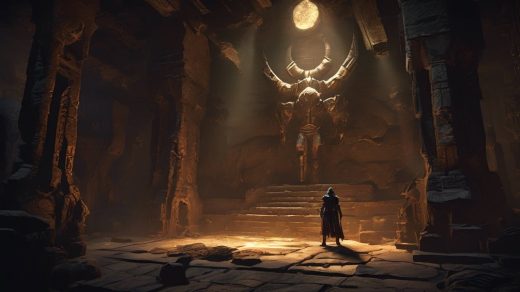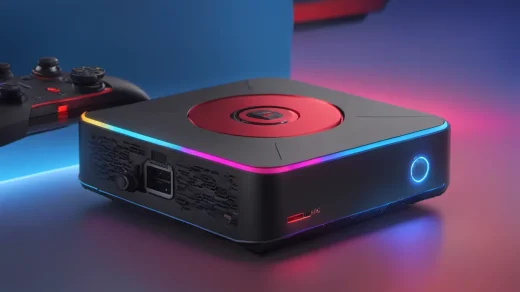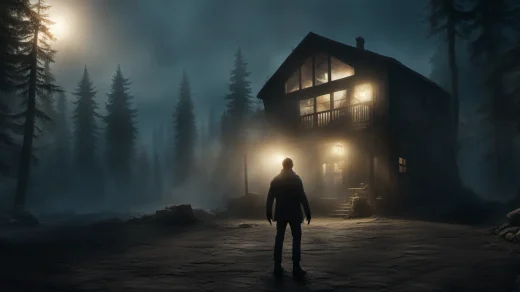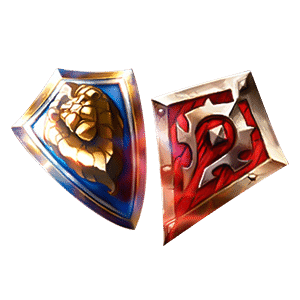Raiding 101: Your First WoW Raid Explained
Understanding the Basics of Raiding
Raiding in World of Warcraft (WoW) can feel like an epic journey, but understanding its basics is crucial for success.
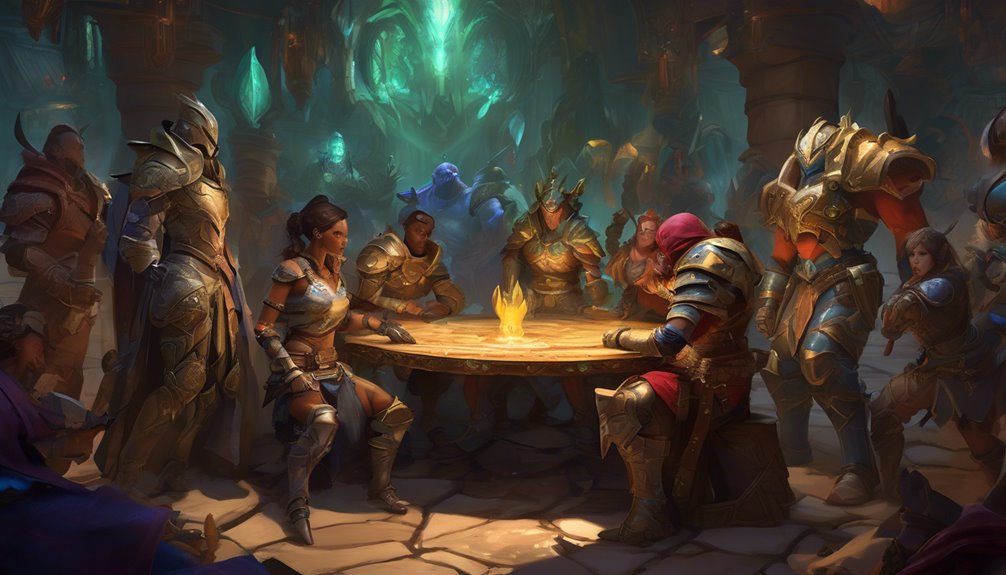 First, familiarize yourself with raid terminology. Terms like “aggro,” “DPS,” and “healers” are essential as they define roles and strategies. Knowing these terms helps you communicate effectively during a raid, which is key to teamwork.
First, familiarize yourself with raid terminology. Terms like “aggro,” “DPS,” and “healers” are essential as they define roles and strategies. Knowing these terms helps you communicate effectively during a raid, which is key to teamwork.
Next, grasping raid etiquette is equally important. Always be punctual and prepared, as showing up late or unprepared can disrupt the flow. When you’re in a raid, respect your teammates by following instructions and avoiding unnecessary chatter. Remember, every player contributes to the group’s success.
Finally, as you engage in raids, keep an open mind. Learning from mistakes is part of the process, and being adaptable will help you grow as a player. By mastering these basics, you’ll set yourself up for a fulfilling raiding experience in WoW.
Types of Raids: Normal, Heroic, and Mythic
Once you’ve grasped the basics, it’s time to explore the different types of raids available in World of Warcraft: Normal, Heroic, and Mythic. Normal raids serve as an excellent entry point, allowing you to familiarize yourself with encounter mechanics and team dynamics without overwhelming difficulty. Once you feel comfortable, you can tackle Heroic challenges, which ramp up the raid difficulty significantly, testing your skills and coordination with more complex mechanics and refined loot distribution.
For the most seasoned players, Mythic encounters offer the ultimate test. These raids represent the highest progression tier, featuring the toughest bosses and the most intricate encounter mechanics. They require precise execution and teamwork to succeed. Each raid type offers unique loot rewards, enhancing your character’s power and gearing up for future challenges. Understanding these raid types is crucial as you embark on your raiding journey in WoW.
Preparing Your Character for Raids
As you prepare your character for raids, understanding the importance of gear optimization and talent selection is essential for your success. First, focus on your character stats; knowing which stats enhance your performance can significantly impact your effectiveness in combat. Aim for optimal gear that complements your class and role, ensuring it’s properly enchanted and gemmed.
Next, evaluate your talent choices. Select talents that synergize well with your gear and the raid encounters you’ll face. This thoughtful selection can optimize your damage output, healing, or survivability.
Don’t forget about consumable items! Stock up on potions, flasks, and food buffs to maximize your stats during the raid. These items can make a difference, especially in high-stakes situations.
Essential Raid Roles and Responsibilities
Understanding your character's preparation lays the groundwork for grasping the various roles and responsibilities within a raid. As a tank, your responsibilities include absorbing damage and managing enemy attention, while ensuring proper raid positioning to keep your team safe. Healers must focus on healer priorities, maintaining health bars and utilizing crowd control when needed. Damage dealers, or DPS, focus on maximizing damage output while being aware of debuffs and positioning to avoid unnecessary damage.
Utility roles play a crucial part in buff management and resource management, providing vital support through various abilities. It’s essential to communicate your encounter strategies and adapt to the dynamic environment of the raid. Keeping an eye on your team’s needs, whether it’s healing, damage, or crowd control, will enhance your effectiveness in fulfilling your role. Understanding these responsibilities will not only improve your gameplay but also elevate the entire raid experience.
Communication: The Key to Successful Raiding
Effective communication is crucial when you're raiding in WoW, and it starts with clear callouts to keep everyone on the same page. Utilizing voice chat can streamline this process, allowing for real-time updates and quick adjustments during intense encounters. Additionally, holding pre-raid strategy meetings helps ensure that every member understands their role and the overall game plan, setting your team up for success.
Clear Callouts Matter
When you’re diving into a challenging raid, remember that clear callouts can make all the difference between victory and defeat. Effective communication is crucial, as it ensures everyone knows their roles and responsibilities. For instance, when a boss is about to use a powerful attack, announcing "Get to the edge!" can help your team reposition swiftly. Similarly, using callout examples like "Focus fire on the adds!" keeps everyone on the same page. It’s important to be concise and direct; avoid long-winded explanations that can lead to confusion. The more precise your callouts, the smoother your raid will run. Don’t underestimate the power of clarity—strong callouts can turn a chaotic encounter into a well-orchestrated victory.
Use Voice Chat
How can voice chat elevate your raiding experience? Utilizing voice chat can transform your group dynamics and efficiency in a raid. It enables real-time communication, allowing you to respond quickly to unexpected threats. However, mastering voice chat etiquette is essential. Mute your mic when you're not speaking to minimize background noise, and keep your commands clear and concise.
Additionally, employing voice modulation tips—like adjusting your tone for urgency—can help convey critical information effectively. Practice active listening to ensure you absorb your teammates' calls and strategies. By respecting others' speaking time and being mindful of your delivery, you foster a supportive environment that enhances teamwork, ultimately leading to a smoother, more successful raiding experience.
Pre-Raid Strategy Meetings
Voice chat sets the stage for a successful raid, but it’s the pre-raid strategy meetings that lay the groundwork for your team’s performance. During these meetings, you’ll want to review your pre-raid checklist, ensuring everyone’s gear, consumables, and talents are ready. This not only boosts confidence but also minimizes unexpected setbacks during the raid itself. Discussing raid leader expectations is crucial; clear roles and responsibilities help streamline your team’s approach. Encourage questions and feedback to foster a collaborative atmosphere. Remember, the more aligned you are before jumping into combat, the smoother your raid will go. So, invest this time wisely—it's the difference between chaos and a well-coordinated victory.
Common Raid Mechanics to Know
Understanding common raid mechanics can significantly enhance your performance and teamwork in World of Warcraft encounters. Familiarizing yourself with boss abilities is crucial since each boss has unique mechanics that can dictate your strategy. You'll often face environmental hazards that can deal damage or hinder movement, so staying aware of your surroundings is essential.
Pay attention to damage thresholds; knowing when to heal or use cooldowns can save lives. Healing mechanics, like who takes priority for healing, play a key role in survival. Crowd control is vital for managing adds, while effective positioning strategies can minimize damage taken.
Debuff management ensures players aren’t overwhelmed by negative effects, and understanding enrage timers helps you know when to ramp up DPS. Lastly, anticipate phase transitions, as these can drastically change fight dynamics. Mastering these mechanics will prepare you for a successful raid experience.
What to Expect on Your First Raid Night
As you gear up for your first raid night, it's crucial to understand the essentials of pre-raid preparation, which can set the tone for a successful run. During the raid, knowing your role and responsibilities will help you contribute effectively to your team. Finally, don’t overlook post-raid wrap-up tips, as they can enhance your future experiences and improve team dynamics.
Pre-Raid Preparation Essentials
Before stepping into your first raid night, it’s crucial to gear up both mentally and physically, as the experience can be overwhelming yet exhilarating. Start by reviewing your pre-raid checklist: ensure your gear is optimized, consumables are stocked, and you've got your addons updated. Familiarize yourself with the raid mechanics and boss strategies—knowledge is power! Gather any necessary raid preparation tips from experienced players; they can provide invaluable insights. Communication is key, so practice your voice chat setup. Lastly, ensure you’re well-rested and ready to focus; a clear mind makes all the difference. By following these steps, you'll set yourself up for success and help create a positive atmosphere for your team. Happy raiding!
In-Raid Roles and Responsibilities
Once you’ve geared up and prepared for your raid, it’s time to step into the action. Each role has specific responsibilities: tanks manage damage and positioning strategies, while the primary healer and off tank ensure survival through effective healer duties and utility skills. Damage dealers focus on maximizing their output, but they’ll need to coordinate crowd control and debuff tracking with support roles. The raid leader orchestrates encounter strategies, emphasizing role synergy and adaptability requirements. Pay attention to buff management, as it can greatly enhance your performance. Remember, clear communication with your team is crucial for executing these roles effectively. Anticipate the unexpected, and don’t hesitate to adjust your approach based on the raid’s progression.
Post-Raid Wrap-Up Tips
After a night of intense battles and teamwork, it's important to take a moment to reflect on your first raid experience. Engage in post-raid reflection by considering what went well and what could be improved. Did you effectively communicate with your team? Were there any mechanics that tripped you up? Sharing experiences with your teammates can foster a sense of community and help everyone grow. Discuss strategies that worked or didn’t, and be open to constructive criticism. Remember, each raid is a learning opportunity, and taking notes can be invaluable for future encounters. Celebrate your victories, no matter how small, and set goals for your next raid night. This wrap-up helps solidify the lessons learned and enhances camaraderie within your group.
Gear and Consumables: Preparing for Battle
As you prepare for battle in World of Warcraft's challenging raids, having the right gear and consumables can make all the difference in your team's success. Start by assessing your gear types, ensuring you've equipped items that align with your stat priorities. Consider gear upgrades that enhance your performance, focusing on item rarity for greater potency.
Next, select your consumable choices wisely. Stock up on potions that provide beneficial effects—healing, damage boosts, or cooldown reductions—and don’t forget about potion preparation to ensure you have them readily available. Food buffs are equally important; they can provide significant stat enhancements, so bring crafted meals that cater to your specific needs.
Lastly, explore enchant options to further optimize your gear. Gather crafting materials for any last-minute upgrades. With the right preparation, you’ll be ready to face whatever challenges await in the raid!
Strategies for Teamwork and Coordination
In any raid, effective communication is essential for keeping everyone on the same page. Understanding each team member's roles and responsibilities not only streamlines your strategy but also enhances overall performance. As challenges arise, being flexible and ready to adapt will help your group overcome obstacles and achieve victory.
Communication Is Key
How can you ensure your raid team operates like a well-oiled machine? Communication is essential for mastering raid dynamics and fostering team synergy. Whether you’re using voice chat or text, make sure everyone’s on the same page regarding strategies and mechanics. Clear calls for movement, cooldowns, and important phases can prevent chaos and keep your team focused. Encourage team members to ask questions if they're unsure about their roles or encounters; this openness builds trust and strengthens your collective effort. Regularly discuss what worked and what didn’t after each raid, allowing for continuous improvement. When everyone communicates effectively, you'll not only enhance performance but also create a more enjoyable experience for all, making your team a formidable force in Azeroth.
Roles and Responsibilities
Understanding the specific roles and responsibilities within your raid team is crucial for achieving success in high-pressure encounters. Each class plays a vital part in the overall strategy, from tank responsibilities to healer duties and damage dealers. Role synergy is key—if everyone understands their class roles, your raid composition will thrive.
RoleResponsibilities
| Tank | Manage boss mechanics, absorb damage, and control positioning tactics. |
| Healer | Provide healing, manage utility skills, and monitor party health. |
| Damage Dealer | Maximize DPS, follow encounter strategies, and adapt to boss mechanics. |
Adapt and Overcome
While facing the challenges of a raid encounter, adapting and overcoming obstacles as a team is essential for success. Effective adaptation strategies can make the difference between victory and defeat. Start by communicating clearly; share your observations and suggest adjustments mid-raid. If a specific tactic isn't working, don't hesitate to pivot—perhaps switching roles or altering positioning could help.
Be aware of your teammates’ strengths and weaknesses; playing to those can enhance your overall effectiveness. Establishing a backup plan is also crucial when facing unexpected mechanics. Remember, overcoming challenges is all about flexibility and teamwork. Embrace the chaos, learn from mistakes, and refine your approach. With practice, your team will become more resilient, ready to tackle even the most daunting encounters together.
Celebrating Success: Loot and Rewards
Once you take down a formidable raid boss in World of Warcraft, the thrill of victory quickly transforms into anticipation as you gather around the loot. This moment is crucial, and understanding loot distribution is key to maintaining team morale. Different reward systems, like personal loot or master looting, can influence how your group shares the spoils.
With personal loot, gear is automatically assigned to players, reducing contention but sometimes leading to disappointment. Master looting, on the other hand, allows a designated leader to allocate gear, fostering strategic decisions but requiring trust among team members.
Regardless of the system, celebrating your hard-earned rewards is vital. Whether it’s an epic weapon or valuable crafting materials, each piece enhances your character and contributes to your ongoing journey. Remember, the joy of loot isn’t just about the items; it’s about the shared experience and teamwork that brought you to this triumphant moment.
Frequently Asked Questions
How Long Do Raids Typically Last?
Raids typically last anywhere from two to four hours, depending on the raid duration and complexity of the raid mechanics. You'll find that preparation and team coordination can significantly impact how smoothly everything goes.
Can I Join a Raid if I'm Under-Leveled?
You can join a raid even if you’re under-leveled, but preparation is key. Consider the benefits of learning mechanics early, and ensure you’re ready to contribute effectively despite your level. Teamwork can make up for gaps.
What Should I Do if I Can't Attend a Raid?
If you can't attend a raid, communicate with your team about rescheduling options. It's a key part of raid etiquette to inform others promptly, ensuring everyone stays informed and can plan accordingly for future events.
How Do I Find a Raid Group?
To find a raid group, use the raid finder tool in-game for quick matches, or explore community forums where players often post about upcoming raids. Engaging with others can enhance your chances of joining a group.
Are There Age Restrictions for Raiding?
There aren't strict age requirements for raiding, but many groups prefer players to be at least 13. If you're under 18, parental consent might be needed, so check with your parents before diving in!

